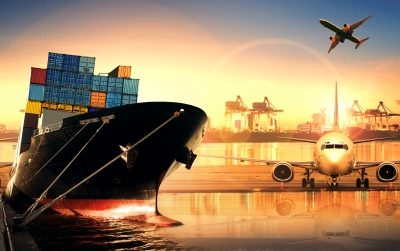 The Maritime Industry Authority (Marina) and shipping operators in the Philippines are opposing bills that propose to exempt transportation services from being a public utility, in the process effectively allowing 100% foreign ownership in the industry.
The Maritime Industry Authority (Marina) and shipping operators in the Philippines are opposing bills that propose to exempt transportation services from being a public utility, in the process effectively allowing 100% foreign ownership in the industry.
Six bills were filed in the Lower House to amend Commonwealth Act No. 146, or the Public Service Act, to “effect necessary changes in the antiquated provisions of the law to increase its relevance to contemporary concerns, in the interest of providing the general public with more choices, better services, and lower prices.”
The bills also seek to fix “ambiguity in the definition of public utility” under the Public Service Act. They propose that eight services no longer be considered public services: transportation, electric power generation, electric power supply, petroleum supply, gas supply, telecommunications, broadcasting, and other public services. Only electric power transmission, water pipeline distribution, and sewerage pipeline system will be considered as public utility.
Philippine Inter-island Shipping Association (PISA) executive director Atty. Pedro Aguilar, in a phone interview with PortCalls, noted that the bills, even though they do not state it outright, will effectively allow 100% foreign ownership in the eight industries as they will no longer be considered public services and thus not covered by the 60-40 ownership rule under the Constitution.
Aguilar said domestic shipping operators are opposing the measures because “right now, we cannot compete” in terms of cost and policies. Unlike their foreign counterparts calling in the Philippines, domestic shipping operators pay certain taxes and are burdened by regulatory costs. Domestic ship operators also need to comply with stricter rules, such as dry docking only in Marina-registered dry docks. These local docks charge higher fees than those located overseas.
Aguilar noted that the proposed bills’ proponents have claimed opening up to foreign players would help address the country’s declining flag registry numbers. But Aguilar explained that the decline is due to the presence of “flags of conveniences” that offer better tax privileges and a faster application process; their regulations are also “virtually nil.”
Even if the country opens its shipping industry to foreign players, most will only call major ports due to limitations on equipment and volume in smaller ports, he added.
Another major consideration why PISA opposes opening up the industry is the “commitment to the trade,” Aguilar said. He pointed out that with the Philippines being an archipelago, shipping is a strategic industry with 80% of cargoes transported by sea. “And as a strategic industry, it should be left to the people who are committed to the trade who will be in the country regardless of the political situation,” Aguilar stated.
In the 1980s when there was political instability, he noted foreign owners left the country. “Filipino ship owners will stay” even if there is a revolution.
Earlier, Marina administrator Marcial Quirico Amaro III said the bills pose a problem because if maritime transportation will no longer be considered a public utility, Marina may lose its regulatory function as there will be no need for the issuance of Certificates of Public Convenience.
The Philippine Competition Commission, which supports the proposed bills, wants the industries removed from the list of public utilities but still be regulated by an agency to protect consumers.
PCC commissioner Johannes Benjamin Bernabe said that under the commission’s proposed definition, “those business activities that have been delisted from the Public Service Act are considered as business affected with public interest and will continue to be regulated as such by the relevant sector regulators.”
The proposed bills—authored by representatives Joey Salceda, Gloria Macapagal-Arroyo, Enrico Pineda, Michael Odylon Romero, Arthur Yap, Feliciano Belmonte, Jr., Jose Christopher Belmonte, and Manuel Monsour Del Rosario III—are pending before the Economic Affairs committee. – Roumina Pablo
Image courtesy of khunaspix at FreeDigitalPhotos.net





